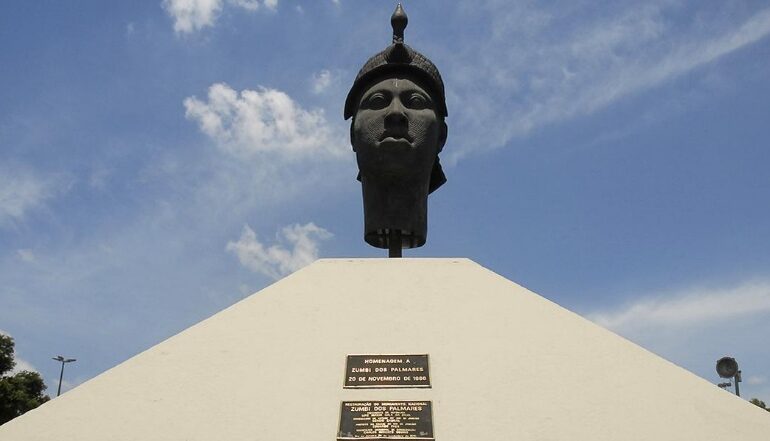
Avellon Williams
BRAZIL- Among the Afro-Brazilian community in Brazil, Palmares is one of the most respected historic sites. As the largest community of runaway enslaved people in history, the famous kingdom had the highest number of runaways.
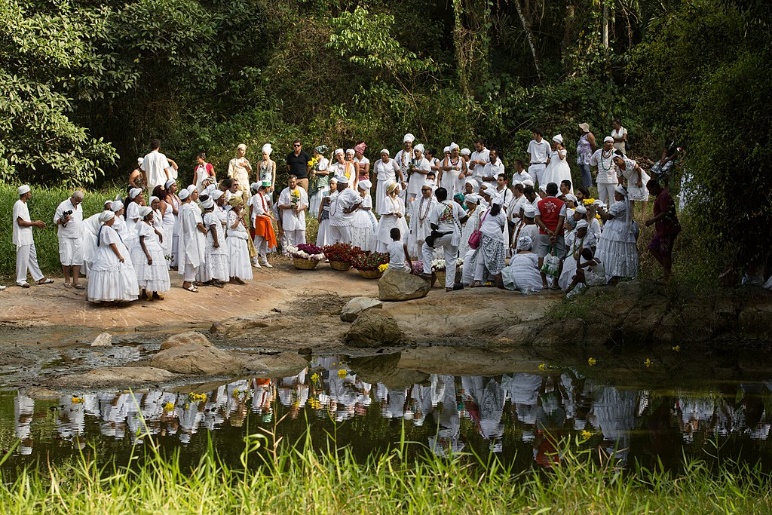
In the last 100 years, it was the only African kingdom in the Americas. It is now regarded as a remarkable symbol of the African Diaspora.
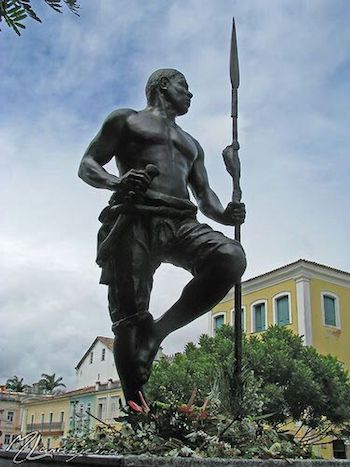
According to John K. Thornton, professor of history at Boston University and author of many books on the African Diaspora and African History said “Palmares was quite ethnically homogeneous, most of its people coming from Angola. After considerable growth during the Dutch occupation of Pernambuco (1630-1654), a Portuguese colonial settlement back then, Palmares started to be shaped as a state, with leadership and social stratification.”
The African kingdom was formed in the early 1600s when slaves fleeing the sugar mills of Pernambuco crossed the mountainous region now called Serra da Barriga to form their communities. The Bantu language of Kimbundu means refugee camp, so they began building villages called Mocambos.
The Portuguese governor Diogo Botelho led expeditions in 1602 to the palm trees-covered region that residents called “Palmares.”
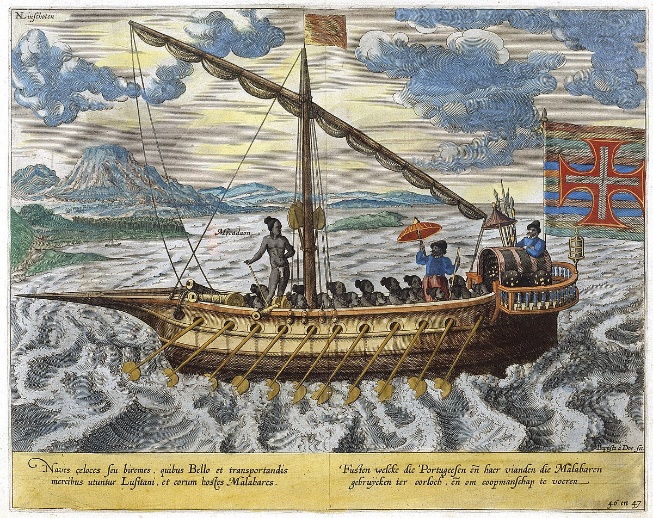
With the Dutch taking over Pernambuco in 1630, the expansion of the kingdom accelerated significantly. However, they failed to conquer the entire region, and soon the Portuguese counterattacked. As the Dutch invaded Brazil in the 1640s, thousands of enslaved Afro-Brazilians fled to the mountains to consolidate an emerging kingdom.
During Palmares’ heyday, roughly 20,000 people lived there, according to some historians.
“This kingdom of fugitives posed a great threat to Portuguese interests: attacks and counter-attacks have taken place, alongside negotiations that began in 1664, when the authorities began to offer amnesty and the right to establish a self-controlled and self-determination state,” said professor Thornton.
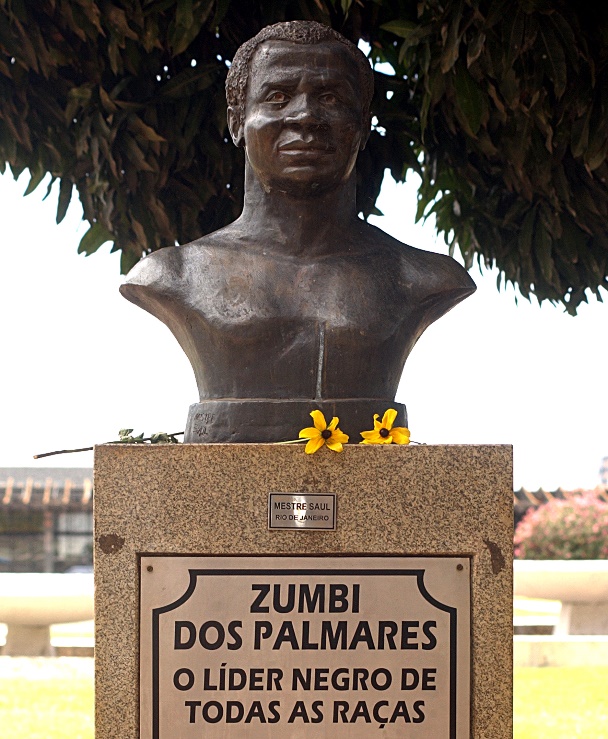
Zumbi is the most popular king of the African kingdom in Brazil, although it had many leaders over its 100 years of existence. At the age of 7, Zumbi was kidnapped by the Portuguese army and handed over to a Catholic priest in Pernambuco. He learned how to speak, read, and write Portuguese there. Despite this, he returned to Palmares at the age of 15, after escaping from the Catholic Church.
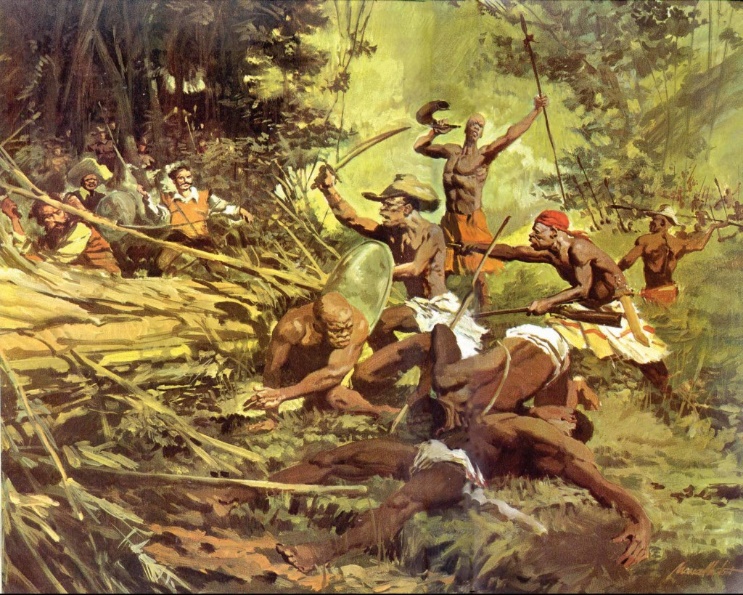
As a great war strategist, Zumbi was recognized in Palmares for his bravery in wars against the Portuguese army. Following a major defeat, King Ganga Zumba of Palmares signed a peace treaty with the Portuguese authorities in Brazil in 1678, recognizing Palmares as a self-contained state once it ceased expanding.
Zumbi became enraged when he learned that Portugal was not trustworthy and rejected the treaty. It was his goal to expand Palmares into a greater African kingdom in the Americas. At the age of 25, Zumbi defeated Ganga Zumba and became king of Palmares, commanding the resistance against the Portuguese.
During his reign, Palmares lived a golden era of wealth and political stability, achieving several victories against Portuguese soldiers.
The notorious and brutal mercenary leader Domingos Jorge Velho attacked Palmares in 1694. Palmares’ main city, Macaco, was destroyed as a result of an intense battle. A wounded Zumbi attempted to flee but was unsuccessful. The beheading took place on November 20, 1695, when he was 40 years old.
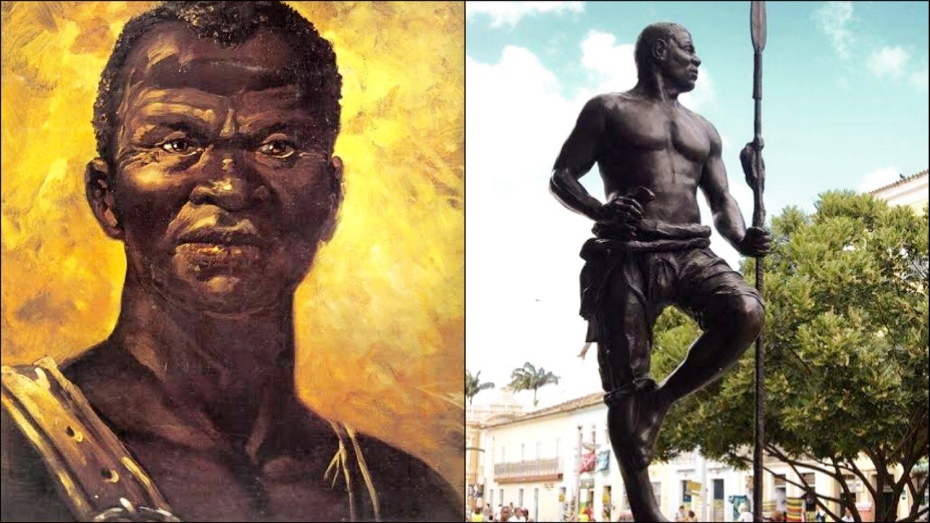
Brazilian authorities hid Palmares’ history for almost 150 years. Palmares were considered mythical during this time. The ruins of Palmares were rediscovered by historians in the 1900s after official reports from the 17th century revealed their existence.
It is on November 20, the date Zumbi was murdered, that Brazil celebrates National Black Consciousness Day, to honor him. There are statues dedicated to Zumbi in Rio de Janeiro and Salvador.
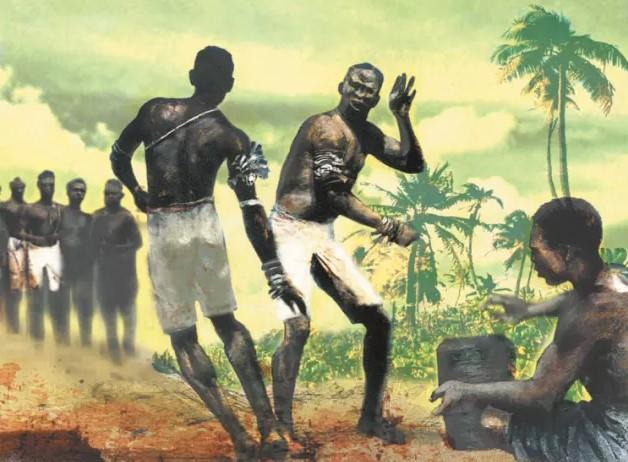
Currently, Palmares is a protected archeological site known as Quilombo dos Palmares Memorial Park. In the northeastern state of Alagoas, it is located. There are some structures left over from when the kingdom flourished in the 1600s that can be visited and seen.




